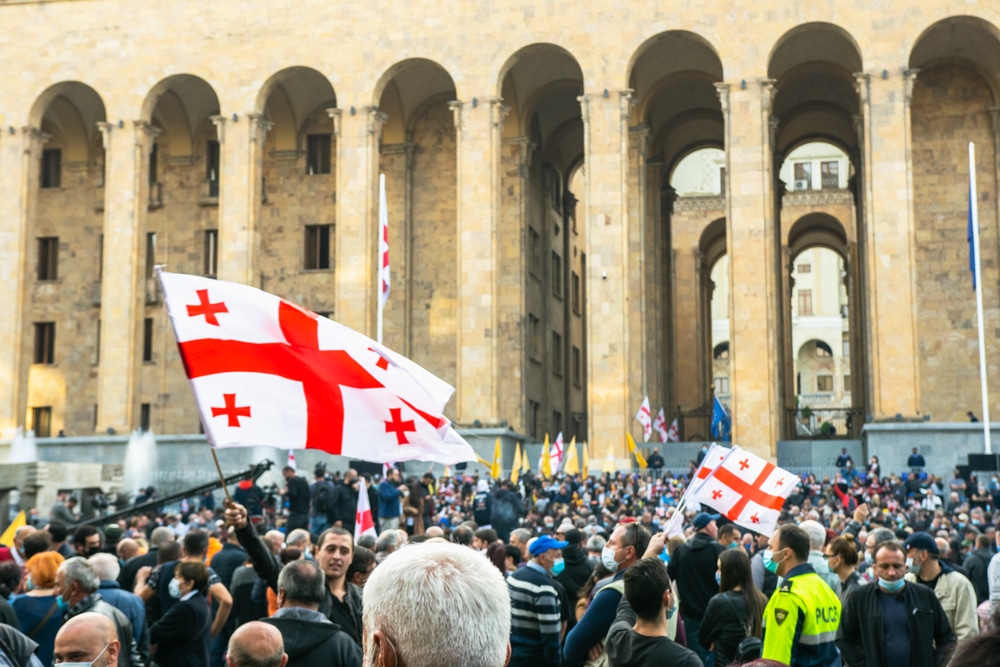In Tbilisi, the capital of Georgia, thousands of demonstrators have rallied against a proposed “foreign influence” bill, which they have labeled as “the Russian law” due to its perceived similarity to Russian regulations used to stifle dissent. The protesters, many waving European Union and Georgian flags, are calling for the government to withdraw the legislation, arguing it threatens civil freedoms and the country’s aspirations to join the EU.
Tbilisi today 🇬🇪🇪🇺 Rustaveli avenue is packed! pic.twitter.com/cn6cyDIxpl
— Alexander Kavtaradze (@alexkavtaradze_) April 17, 2024
The contentious bill, if passed, would require non-governmental organizations and media outlets receiving more than 20% of their funding from foreign sources to register as “organizations serving the interests of a foreign power.” This move has been criticized by opposition parties and independent journalists as an attempt by the ruling Georgian Dream party to suppress critical voices and maintain power by emulating Russian authoritarian tactics.
The debate over the bill has not only mobilized thousands of citizens but also led to physical altercations among lawmakers. During a parliamentary session, opposition MP Aleko Elisashvili punched Georgian Dream parliamentary leader Mamuka Mdinaradze, leading to a brawl on the floor of parliament. The violence highlights the deep political divisions and the charged atmosphere surrounding the bill’s discussion.
NOW‼️Fight breaks out in Georgia’s parliament🇬🇪 pic.twitter.com/Xs89KAPR7a
— Radar🚨 (@RadarHits) April 15, 2024
Georgia’s politicians are kicking off inside the parliament while people protest peacefully outside on the streets against the Kremlin-inspired law on “foreign agents.” pic.twitter.com/UgLcKhPADM
— Jason Corcoran (@jason_corcoran) April 15, 2024
Prime Minister Irakli Kobakhidze and other supporters of the bill argue that it is necessary for ensuring financial transparency among organizations receiving foreign funds. However, this stance has faced strong opposition from within Georgia and from international actors. Both the European Union and the United States have condemned the bill, stating it contradicts the democratic norms required for Georgia’s integration into European structures.
Expanded Coverage:






